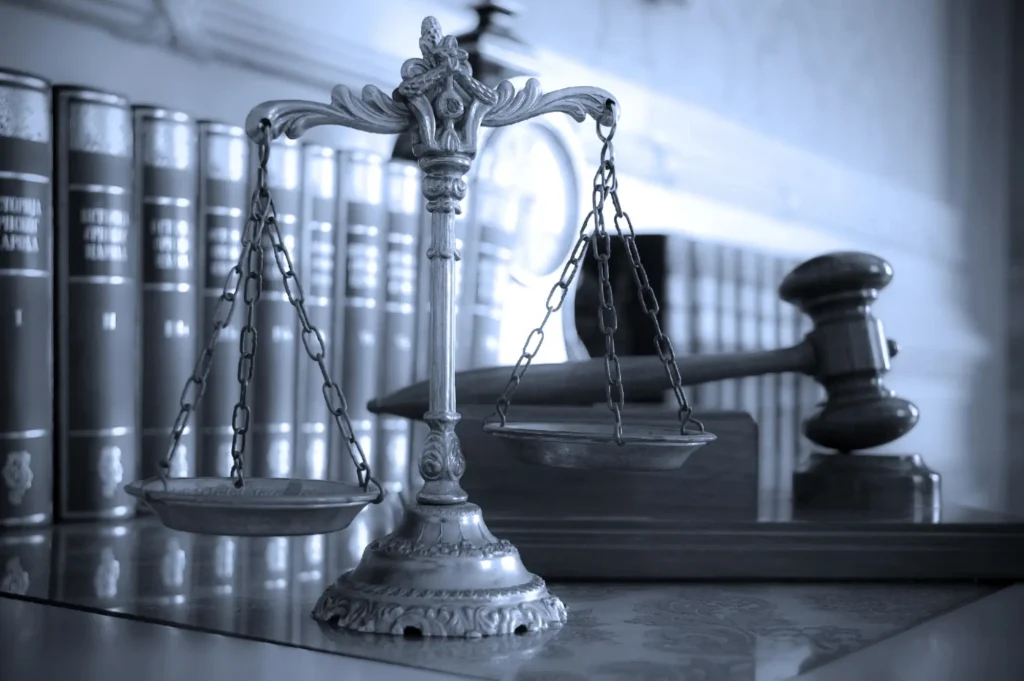Taking your divorce case to trial is gambling with your future. You never have enough time to fully explain your circumstances and that of your family and finances to a Judge, let alone how much of your story they will truly understand. A better option is to stay out of court and choose a divorce process where you have more control, Collaborative Divorce.
Going to Court Is a Gamble

Walking into court for your divorce is like rolling dice in Las Vegas. You have no idea who the Judge will be, what kind of mood they are in, or what kind of personal experiences may influence their decisions. The truth is that the Judge knows very little about your life. You are given only a short window of time to explain what matters most: your family, your finances, and your children. You never have enough time to tell your full story.
And once you file for divorce, you are putting all those decisions in the hands of a stranger. You are giving up control of the people and things that are most important to you and hoping for the best. That kind of risk is not worth it.
There Are No Real Winners in Court
Even if your lawyer “wins” your case, court does not create peace. A contested divorce often creates resentment that lingers for years. If you share children with your former spouse, you will still have to work with and interact with them long after the trial is over. Litigation can create bitterness, making future cooperation difficult.
Collaborative Divorce Helps You Find Real Solutions
Collaborative Divorce gives you a different path. You are not on your own. You work with a team that will include your attorneys, a financial expert, a mental health professional, child specialist and others depending on your situation. You and your spouse may not agree on everything, but you will have help reaching solutions that work for both of you. It is not about giving in – it is about finding practical ways to move forward.
You Can Keep Personal Matters Private
Divorces handled through the court system become part of the public record. That means details about your finances, your family, your property, and other personal matters are available for anyone to see. Sometimes, the Judge will broadcast the court proceedings on YouTube. No one wants to get their “15 minutes of fame” in that manner! Even when documents or exhibits are marked confidential, important information often ends up in the final decree, which is not private.
With Collaborative Divorce, your conversations and agreements happen behind closed doors. You meet privately with your attorney, your spouse, and any professionals involved in the process. This approach helps protect your privacy and keeps sensitive matters out of the courtroom.
There Is Still Work to Do After Court
Even after the judge signs your divorce decree, there may still be loose ends to address. You might need to close joint accounts, transfer property titles, or settle shared expenses. These tasks often fall outside the scope of what the court handles directly.
When you resolve your divorce outside of court, you and your spouse can take care of these details with guidance from your team, reducing confusion and avoiding future disputes.
Contact Paula Lock Smyth Law Offices
If you are thinking about divorce, you deserve a process that protects your peace of mind. At Paula Lock Smyth Law Offices, we focus on Collaborative Divorce arrive at out-of-court solutions that reduce conflict and promote peace. Contact us today at 214-420-1800 to schedule a consultation. Our office is located at 2911 Turtle Creek Blvd., Suite 300, Dallas, TX 75219.
Paula Lock Smyth has practiced law in Texas since 1985, focusing on Family Law, Probate, Mediation, and Collaborative Divorce. She is a trained mediator, seasoned litigator, and one of the early adopters of Collaborative Divorce in Texas. Paula is a member of the State Bar of Texas, the College of the State Bar and the Texas Bar Foundation and has served as Past President of Dallas Lawyers Concerned for Lawyers. She was a Master in the Annette Stewart Inn of Court and is a Charter Member of the Collaborative Law Institute of Texas. Her legal knowledge and decades of experience make her a trusted voice on matters that impact families across Dallas and surrounding counties.
